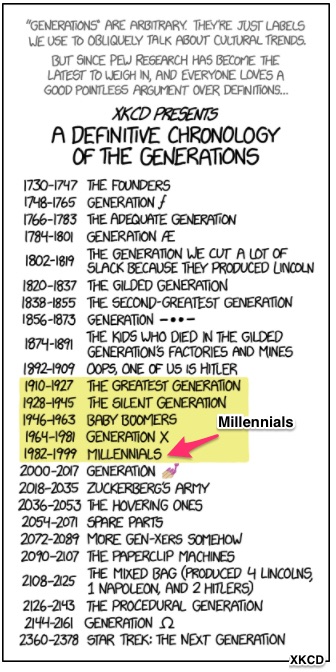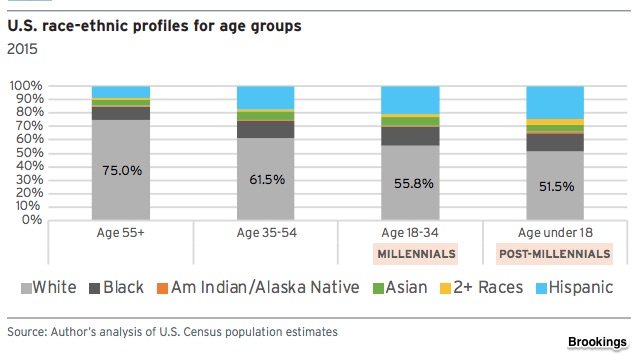Pew Research just decided who is a Millennial.
If you were born between 1981 and 1996, then you are a Millennial:
But XKCD disagrees:
What is a Millennial?
In numbers, diversity, marriage, education, and home ownership, Millennials are different from other generations.
Numbers
As a Millennial, you also will soon outnumber every other generation, even the Baby Boomers:
Diversity
Compared to their parents and grandparents, Millennials are more racially diverse:
Marriage
They are less likely to be married:
But more than previous generations, they are graduating from college:
Home Ownership
Perhaps because Millennials are delaying marriage and kids, they are less likely to own a home:
Our Bottom Line: Generational Research
Pew presented the three reasons for slicing research into generational layers.
- Life Cycle Effect: By grouping people into 15-20 year cohorts, we can look within a cohort and between them. We can segment people’s lives horizontally to see what they are doing at different ages. Then, looking vertically, we can observe how attitudes evolve. And also, as we did above for home ownership, a life cycle approach lets us compare the same age for different cohorts.
- Period Effect: We can observe how a widespread phenomenon during one era has a similar impact on different generations. The spread of technology could be an example.
- Cohort Effect: As a third lens, the cohort effect displays how an event particularly shaped one generation. Here we could be focusing on the impact of the 1930s depression on the Silent Generation or Vietnam on the Baby Boomers.
So where are we? As economists, it helps to know a generation’s characteristics. Especially in business and government, we can assess policy so much more precisely.
My sources and more: Starting with Pew and Brookings, the reports that focus on Millennials seemed unending. Then, for a more specific spotlight, the Atlantic looked at where millennials live and who buys homes. And when I began to wonder why to look at generations, Pew had some answers.













